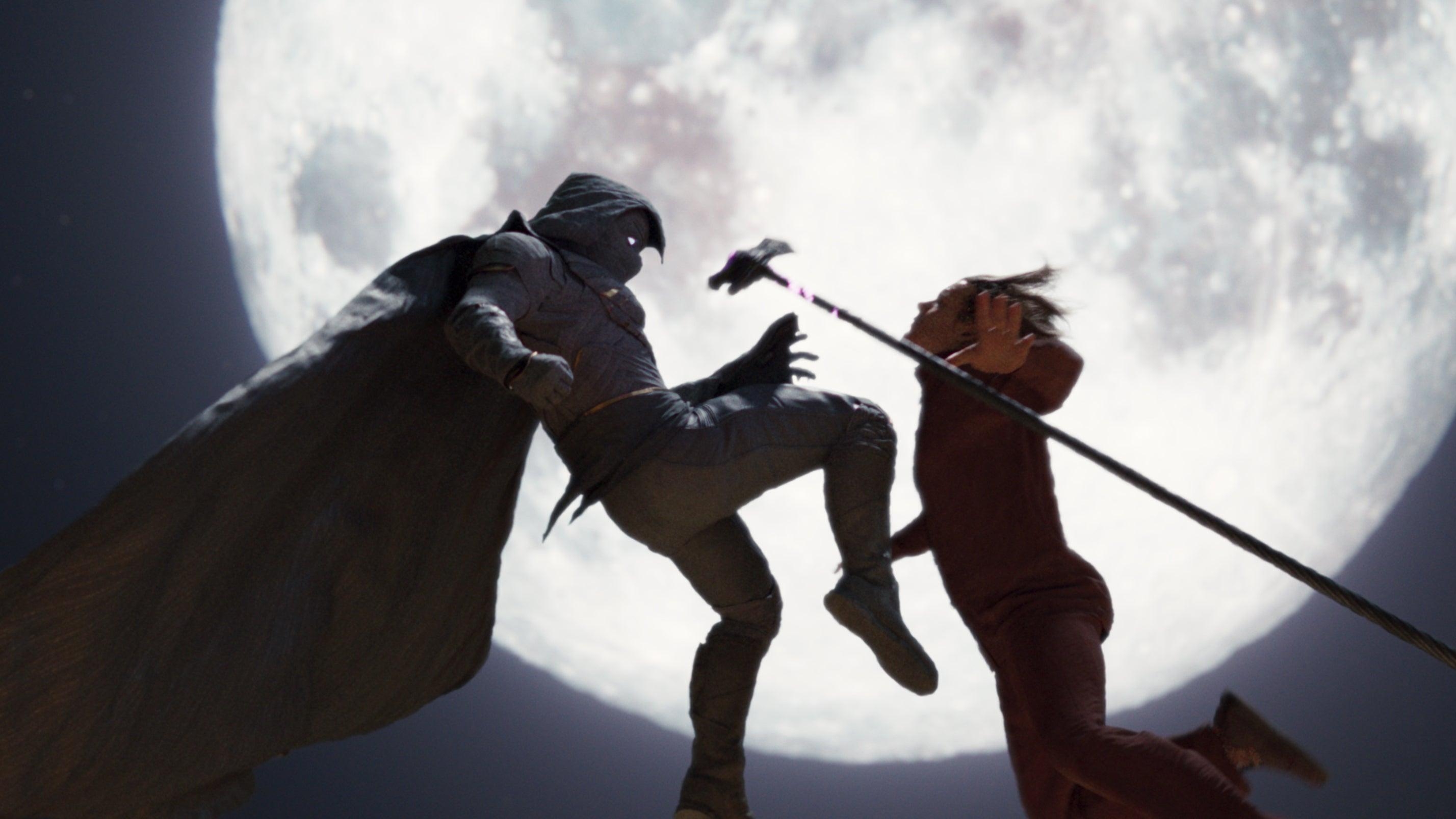Moon Knight got away with not addressing the MCU (and that's a good thing)
It probably won't last long, but the Disney Plus series managed to stay in its own bubble during season one

Moon Knight’s first season is so self-contained, you wouldn’t even know it was part of the Marvel Cinematic Universe if each episode didn’t open with the trademark opening theme of Marvel’s iconic superheroes. Created by Jeremy Slater, season one stayed in its glorious bubble. It’s shocking for a franchise that thrives on codependence. Moon Knight tells the distinctive story of Marc Spector/Steven Grant, a.k.a. Moon Knight/Mr. Knight (Oscar Isaac) with nary a reference to any of its corporate overlords. As a reminder: We are talking about the rich, complicated on-screen tapestry Marvel and Kevin Feige have been constructing since 2008's Iron Man, and not comics that inspired the series.
In fact, the only confirmation (we think) of the show being set in a post-Avengers: Endgame world comes in episode two. A bus stop billboard has a sign for the Global Repatriation Council (GRC), an organization formed after Thanos was defeated, to help the returning displaced population readjust to the world. It’s the same org that The Falcon And The Winter Soldier’s villains, the Flag Smashers, want to take down. And yet, in Moon Knight’s premiere, neither Thanos nor his fatal Snap gets any shoutouts from Arthur Harrow (Ethan Hawke) while he rattles off names like Hitler, or destructive events like the Armenian genocide.
That GRC poster is the single self-referential nod in Moon Knight, and that’s actually pretty great, even if it might—and it probably will—be temporary. For one season, head writer Mohammed Diab got to zero in on the singular tale of Marc’s identity and mental health crisis. A mercenary and avatar of Egyptian God Khonshu (voiced by F. Murray Abraham), Marc created Steven as a safety net to deal with childhood trauma. The show unpacks his journey without having to shoehorn in a subplot about the Blip, or begin establishing some connection between Marc and any other Avengers or Eternals. (Side note: What kind of discounts are MCU’s London-based museum employees like Steven, Sersi, and Dane Whitman getting?)
Alright, alright, don’t roll your eyes yet. The Marvel Industrial Complex obviously won’t let Moon Knight avoid MCU mentions in the future, whether that’s in a second season or with an Isaac-led, full-fledged movie. For now, it’s important to understand that each Disney+ project, much like the films, is interconnected to a degree where escaping Easter eggs is not an option.
Remember the anticipation for Wilson Fisk in Hawkeye? Or Jonathan Majors’ debut as Kang in Loki, which nicely sets up his time in Ant-Man And The Wasp: Quantumania? TFAWS is a big step forward in MCU’s Phase Four (Sam Wilson as the new Cap, introducing Julia Louis-Dreyfuss’ character before her Black Widow gig). Heck, to make the most out of Doctor Strange In The Multiverse Of Madness, everyone better catch up on his 2016 origin movie, all his other appearances (especially No Way Home), plus Elizabeth Olsen’s WandaVision. (Let’s not even get started on the deranged Mephisto debacle of that one.) Even the animated What If… felt like a standalone structure, but it tied into the multiverse by the end anyway.
If the interlinking in the above paragraph didn’t make it clear already, committing to the MCU is tantamount to doing lots of homework. It’s not necessarily a dealbreaker for hardcore fans who have already seen these shows and films, including yours truly, even if it’s causing some amount of fatigue. Luckily, Moon Knight escapes this weird pressure and uses that to its advantage. It churns out diverse, character-driven stories told through a fresh lens and in new settings for the MCU. The show still succumbs to a high-stakes, big-budget battle in the finale—Marvel’s gonna Marvel, no matter what—but Isaac, Hawke, and May Calamawy deliver poignant performances to anchor the CGI-filled scenes. We don’t know how Marc/Steven/and now—spoiler alert: Jake Lockley—will show up next, but let’s take this moment to appreciate Moon Knight’s insular arc. Knowing the MCU, it won’t happen very often.